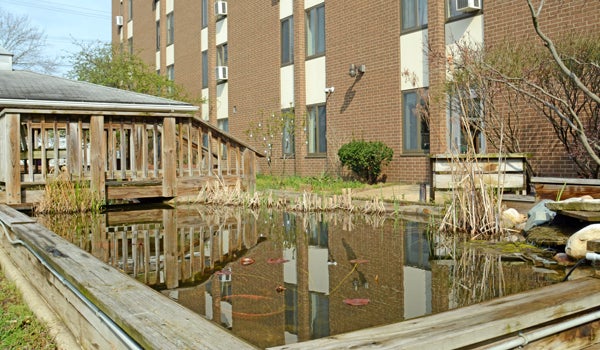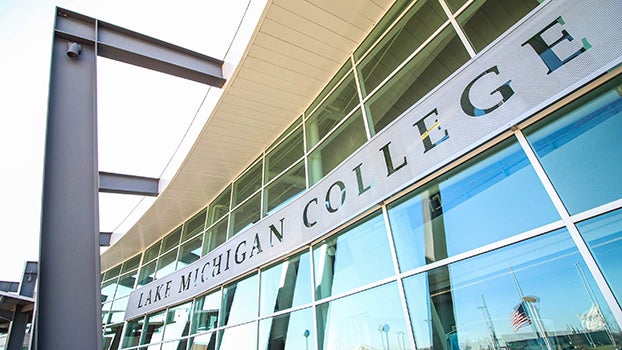Residents in low-income housing see major improvements in past two years
Published 8:55 am Monday, April 17, 2017
Much like a house that needs repairs, the Niles Housing Commission has spent the past two years undergoing an overhaul from the inside out. Now commissioners are equipped to significantly improve the lives of public housing residents by increasing the quality of their homes.
On March 31, after completing more than $1 million in public housing capital reinvestment projects funded through public housing capital subsidies, the commission received a score of 95 out of 100 on its Public Housing Assessment Systems score from the U.S. Department of Housing and Urban Development. Before the upgrades, the commission’s score in the mere 60s — ranking Niles one of the lowest in the state, said Sanya Vitale, the Community Development Director and housing commissioner.
“We went from the worst in the state to one of the highest performing housing commissions in the state of Michigan,” Vitale said. “It is so exciting.”
Vitale’s expertise is in HUD regulation and local government management. Vitale got her start in the field in 1995 in South Bend, when she worked for a youth shelter. She worked her way up the ladder to be a compliance expert, helping city housing commissions when they are in danger of losing funding from HUD.
Vitale became the Niles housing director in 2015. While she said that the city was not at the point of losing money, it had been given a warning by HUD to “clean up their ship.”
“It is not that they were doing things malintended,” Vitale said. “They [the commission] just did not know how to do the things that HUD required.”
To make effective changes, the commission hired a new real
estate management company, Fourmidable, to oversee the Niles properties.
The five-person commission also set to work to create a 5-year HUD approved plan, based partly on residential feedback.
“They [residents] came out and told us what they really wanted and we took all that into consideration and listened to their wishes,” Vitale said.
The plan included upgrading the 50 scattered site homes and 129-unit high-rise at 251 Cass St., where low-income residents live.
Residents received brand new stoves and refrigerators, new closet doors, HVAC replacements, ground repairs and a number of other upgrades.
Before the project overhaul, the relationship between residents and the housing commission was tense.
“They used to come to our meetings and yell at us and demand action,” Vitale said. “We have gone from that to hearing things like ‘thank you’ and ‘God bless you for getting this yuck out of our units.’”
Other residents shared a similar sentiment about the changes.
Sitting outside on a cool Friday morning, Roseann Gagliardo and Paul Fairchild talked on a bench near the entrance.
Both said living in the high rise is a better experience.
“It is nice,” Gagliarido said. “They got new floors.”
Vitale said they made the decision to rip out all of the old carpets in the high rise and replace them with hypoallergenic hard flooring material that gives the building a fresh, polished hardwood floor look.
Fairchild, who has lived there for a year and a half said he agreed.
“It made it look real nice,” Fairchild said. “I cannot complain.”
The high rise was built in the 1960s. Vitale said she did not know of the last time that the carpets had been replaced. Old carpets can carry molds, dust mites, animal hairs and other harmful material in their fibers that could make people sick. In addition to replacing the carpets, Vitale said the city also upgraded the commission’s trash and pest management contract.
“We had a major bedbug problem [in the high-rise] when we started,” Vitale said. “We were spending thousands of dollars on pest management.”
The commission selected Lake Shore-based CE Solutions, which offered a environmentally friendly spray that could rid a unit of bedbugs, as opposed to having to fumigate a resident’s home. Now, the bedbug problem is gone, Vitale said.
“When you care about those within your own community who are disenfranchised first, then the rest of the community will follow suit. That this is key for local understanding and economic development,” Vitale said.
The parking lot and grounds also got a revamp.
Besides a new space, residents also can visit Lakeland Health at a nurse station inside the building. One nurse and a patient care assistant are available and offer free personal, physical and mental healthcare on Tuesdays and Thursdays.
Residents inside the high-rise, were also given the opportunity to start a residential committee. The committee helps to select group activities and events to put on.
In addition to the TV room, Fairchild and Gagliardo said that they enjoy sitting outside under the gazebo, which borders a small pond.
A little less than a year ago, the water was a stagnant, cloudy and uncared for. Now, the water is clear enough to reflect the seven-story high-rise. Fish swim among the plants and a small stone fountain runs near the water’s edge.
Moving forward, Vitale said she feels the commission has now set the path to continue to improve and respond to public housing residents’ needs.
The high-rise is expected to get a new roof. Additionally, the commission will continue to work toward blight elimination, removing trees damaged by February’s tornado and infrastructure repairs.
“We are making a community for people that do not have the opportunity,” Vitale said.







